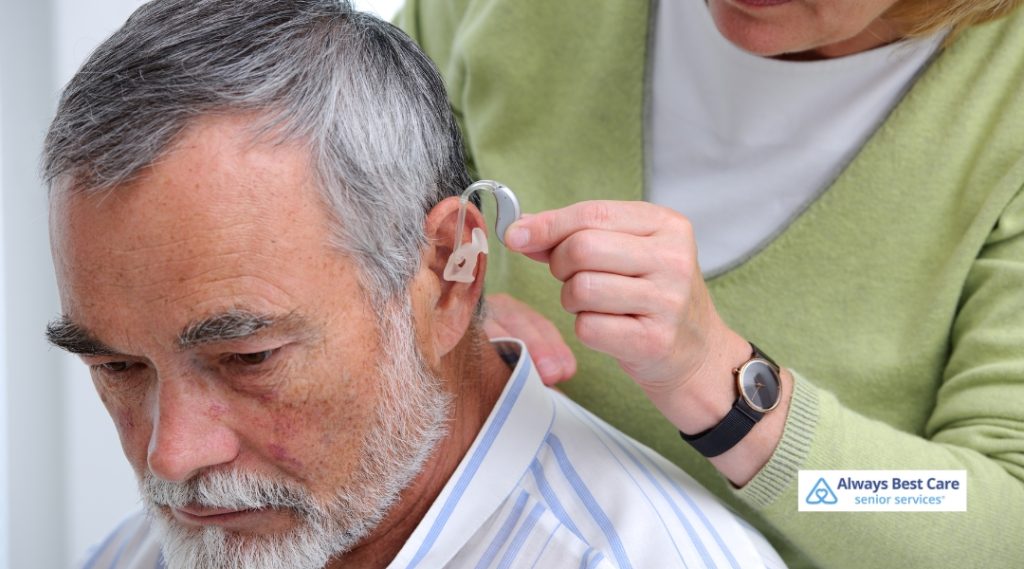How to Support Someone Who May Be Struggling with Hearing

If you’ve started to notice your parent cranking up the TV or asking folks to repeat themselves more than usual, you’re not alone. Hearing loss is just part of getting older for many, but talking about it? Now, that can feel like stepping onto thin ice. With some compassion and patience, and maybe a pinch of courage, you can open this door without ruffling too many feathers.
What you will learn:
- How to spot the early signs of hearing loss in a loved one.
- How to approach the conversation about hearing loss with care and empathy.
- How to reduce stigma around hearing aids and seeking help.
- Practical steps for supporting your loved one through the process.
Table of Contents
Spotting the Signs: Is It Time to Talk?
Sometimes, hearing changes creep in so quietly they’re mistaken for forgetfulness or even stubbornness. Here are a few tell-tale signs:
- Struggling to follow conversations in noisy rooms.
- Turning up the TV louder than ever.
- Complaining that everyone else mumbles.
- Withdrawing from group chats or looking disinterested.
- Responding oddly because something got misheard.
Caught yourself nodding along? Maybe it’s time for a gentle chat, one focused on care rather than criticism.

How Do You Start This Tricky Conversation?
Pick the Right Moment
Timing really matters here. Choose a calm moment when you won’t be interrupted by phones ringing or kids running wild. Try not to bring up hearing concerns in frustration; nobody likes feeling cornered.
Lead with Empathy
Instead of launching into what’s wrong, try using “I” statements:
- “I’ve noticed our phone calls have gotten tougher lately.”
- “I worry that you might be missing out on stories when we all get together.”
Approaching things from your loved one’s perspective helps avoid making them defensive.
Keep Things Positive
Reassure them: hearing loss happens to lots of folks as they age, and help is available! Today’s hearing aids are pretty slick, tiny, and discreet, and tackling hearing issues early actually helps people stay independent longer.
Tackling Stigma Around Hearing Loss
Many seniors avoid talking about their ears out of fear, fearing they’ll lose their independence or look frail. Remind them:
- Needing support doesn’t make anyone weak; it means we care enough to act.
- Using tools like glasses or blood pressure meds isn’t shameful, and neither is wearing a tiny device in your ear!
Highlighting how treating hearing loss lets people keep enjoying outings, chatting with grandkids, and staying safe at home helps soften any stigma.

What if They Don’t Want Help Right Away?
Don’t force things! If Mom hesitates about seeing her doctor (or seems embarrassed), take a breather. Bring it up again later, with patience still firmly in place.
And remember:
- Suggest booking an appointment just as you’d recommend an eye exam.
- Offer the company that if nerves are high, a little moral support goes far.
- Be patient; sometimes these ideas need time to settle before someone acts on them.
How Always Best Care of Memphis Can Lend a Hand
At Always Best Care of Memphis, we understand how overwhelming this journey can feel for both parents and adult children alike. Our caregivers know their way around supporting those with changing needs, including challenges around ears and communication!
Here’s what we bring:
- Patient guidance during conversations.
- Encouragement during appointments (we’ll even remind you about check-ups!).
- Help understanding doctors’ advice so nothing important slips by unnoticed.
- Support learning new gadgets (like those fancy modern hearing aids).
Above all? We keep connections strong between families, even when conversations get tricky.

FAQ: Talking About Hearing Loss & Support from Always Best Care
Q: Why do some older adults resist getting their ears checked?
A: Often, it’s fear of losing control or appearing dependent that holds people back, rather than stubbornness itself.
Q: What should I say first when bringing up my parents’ possible hearing problem?
A: Start small with honest “I” statements such as: “I’ve noticed family gatherings seem harder lately. Is there anything I can do?”
Q: Will my loved one really benefit from using new technology like modern hearing aids?
A: Absolutely! Today’s devices are much smaller and better performing, and most users notice improved social lives almost right away once they’re used properly!
Q: How does Always Best Care help families dealing with senior loved ones’ health concerns, including communication difficulties due to poor hearing?
A: We offer practical support, from gentle reminders for appointments, right down to transportation help, plus training around any assistive devices recommended by professionals.
Let’s Start the Conversation and Keep Your Loved One Connected
Thinking it’s finally time for an honest heart-to-heart chat about Mom’s (or Dad’s) well-being, or want expert hands helping nurture those priceless connections between generations again? Give us a call at Always Best Care of Memphis today… because together truly is better!
Contact Always Best Care of Memphis at (901) 414-2388 to learn more and schedule your free consultation.





